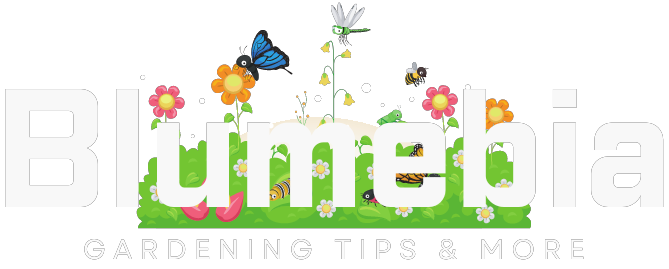If you’re looking to start an organic vegetable garden, you’re in the right place. Organic gardening is a great way to grow your own food while avoiding harmful chemicals and additives. In this article, we’ll cover the basics of organic vegetable gardening, including soil preparation, natural pest control, and more.
One of the key components of organic vegetable gardening is soil preparation. Organic gardening relies on natural fertilizers and soil amendments, so it’s important to start with healthy soil. This means testing your soil to determine its pH level and nutrient content, and then adding organic matter like compost, manure, or leaf mold to improve soil structure and fertility. By doing so, you’ll create a healthy environment for your vegetables to grow and thrive.
Another important aspect of organic vegetable gardening is natural pest control. Instead of relying on chemical pesticides, organic gardeners use a variety of natural methods to keep pests at bay. This can include companion planting, which involves planting certain herbs and flowers alongside your vegetables to repel pests, or using physical barriers like row covers or netting to keep insects away. By taking a holistic approach to pest control, you can create a healthy and sustainable garden that benefits both you and the environment.
Understanding Organic Gardening
If you are interested in growing your own vegetables, you may want to consider organic gardening. Organic gardening is a method of growing plants using natural techniques that do not rely on synthetic fertilizers, pesticides, or herbicides. By using sustainable methods, organic gardening can help protect the environment and produce healthy, nutritious vegetables.
Principles of Organic Gardening
There are several principles of organic gardening that you should be familiar with if you are interested in growing vegetables organically. These principles include:
Soil Health: Organic gardening starts with healthy soil. This means using compost and other natural amendments to improve soil fertility and structure, which in turn helps plants grow strong and resist pests and diseases.
Natural Pest Control: Instead of using synthetic pesticides, organic gardeners use natural pest control methods such as companion planting, crop rotation, and beneficial insects to keep pests at bay.
Crop Diversity: Organic gardeners plant a variety of crops to promote biodiversity and reduce the risk of pests and diseases.
Benefits of Growing Vegetables Organically
There are many benefits to growing vegetables organically. Some of these benefits include:
Healthier Vegetables: Organic vegetables are grown without synthetic fertilizers or pesticides, which means they are free from harmful chemicals.
Better for the Environment: Organic gardening methods help protect the environment by reducing the use of synthetic chemicals that can harm wildlife and pollute waterways.
Cost Effective: While organic gardening may require more effort upfront, it can be more cost-effective in the long run since you can save money on synthetic fertilizers and pesticides.
By following the principles of organic gardening, you can grow healthy, nutritious vegetables while also protecting the environment.
Soil Preparation for Vegetable Gardens
Growing vegetables organically starts with healthy soil. The soil should be rich in nutrients and have good drainage. In this section, we will discuss soil preparation for vegetable gardens.
Testing and Amending Soil
Before planting your vegetable garden, it is important to test the soil. You can purchase a soil test kit from your local garden center or use a soil testing service. The test will tell you the pH level, nutrient levels, and texture of the soil. Based on the results, you can amend the soil to make it more suitable for growing vegetables.
If the pH level is too low or too high, you can add lime or sulfur to adjust it. If the soil lacks nutrients, you can add organic fertilizers such as compost, aged manure, or bone meal. Be sure to follow the instructions on the package and apply the correct amount of fertilizer.
Composting and Mulching
Composting is a great way to enrich the soil and improve its structure. You can make your own compost by collecting organic matter such as fruit and vegetable scraps, leaves, grass clippings, and coffee grounds. Mix the organic matter with soil and water, and let it decompose for several weeks. Once it has decomposed, you can add it to your vegetable garden.
Mulching is another important aspect of soil preparation. Mulch helps retain soil moisture, suppress weeds, and regulate soil temperature. You can use organic mulch such as straw, leaves, or grass clippings. Spread a layer of mulch around your vegetable plants, making sure not to cover the stem or leaves. Mulch will break down over time and add organic matter to the soil.
By testing and amending the soil and adding compost and mulch, you can create a healthy environment for your vegetable garden.
Planting Your Organic Vegetable Garden
Now that you have prepared your organic garden bed, it’s time to start planting. In this section, we’ll cover how to choose the right vegetables for your garden, and how to start your seeds or transplant your seedlings.
Choosing the Right Vegetables
When choosing vegetables for your organic garden, it’s important to consider your climate and growing season. Some vegetables, like tomatoes and peppers, require a longer growing season and warmer temperatures, while others, like lettuce and spinach, prefer cooler temperatures and can be grown in the spring and fall.
It’s also important to consider your family’s preferences and eating habits. If you’re not a big fan of beets, for example, there’s no sense in planting them in your garden. Instead, focus on vegetables that you and your family enjoy eating.
Here are some popular vegetables that are well-suited for organic gardening:
- Tomatoes
- Peppers
- Cucumbers
- Squash
- Zucchini
- Lettuce
- Spinach
- Kale
- Broccoli
- Carrots
- Radishes
- Green beans
- Peas
Seed Starting and Transplanting
Once you’ve chosen your vegetables, it’s time to start your seeds or purchase seedlings to transplant into your garden. Starting seeds indoors can be a great way to get a head start on the growing season, but it requires more time and effort than purchasing seedlings.
To start seeds indoors, you’ll need to purchase or make seed starting mix, which is a light, soilless mixture that is free of weeds and disease. Fill seed trays or containers with the seed starting mix, and plant your seeds according to the package instructions.
Once your seedlings have grown to a size that is suitable for transplanting, you can move them to your garden bed. Be sure to harden off your seedlings first by gradually exposing them to outdoor conditions over the course of a week or two.
If you prefer to purchase seedlings, be sure to choose healthy, disease-free plants. When transplanting, be sure to space your plants according to their specific requirements, and water them thoroughly after planting.
With these tips, you’ll be on your way to a successful organic vegetable garden in no time.
Natural Pest and Disease Control
When it comes to organic vegetable gardening, natural pest and disease control is crucial. Here are some effective methods for keeping pests and diseases at bay:
Integrated Pest Management
Integrated Pest Management (IPM) is a holistic approach to pest control that involves using a combination of techniques to manage pests. This includes cultural practices like crop rotation, physical control methods like handpicking pests, and biological control methods like introducing beneficial insects. By using a variety of methods, you can reduce the need for chemical pesticides and promote a healthy, balanced ecosystem in your garden.
Organic Pesticides and Repellents
There are several organic pesticides and repellents that can be used to control pests in your vegetable garden. One effective option is neem oil, which is derived from the neem tree and can be used to control a wide range of pests, including aphids, whiteflies, and spider mites. Another option is diatomaceous earth, which is a fine powder made from the fossilized remains of diatoms. It can be sprinkled around plants to control pests like slugs, snails, and ants.
In addition to pesticides, there are also several natural repellents that can be used to keep pests away from your garden. For example, planting marigolds around your vegetable garden can help repel pests like nematodes and whiteflies. Garlic is another effective repellent, and can be planted near tomatoes to help protect them from pests like aphids.
By using these natural pest and disease control methods, you can keep your vegetable garden healthy and thriving without relying on harmful chemicals.
Frequently Asked Questions
What are the essential steps for preparing soil for an organic vegetable garden?
The most important component of soil is organic matter, such as compost, manure, or peat moss. Compost is the best option because it contains decayed microorganisms of previous plant life, which supply essential nutrients to the soil. Before planting, make sure to remove any weeds, rocks, or debris from the soil. Loosen the soil to a depth of at least 6 inches to promote root growth, and add compost to the soil to increase fertility.
How can beginners start an organic vegetable garden from scratch?
Starting an organic vegetable garden from scratch is easy. Begin by choosing a suitable location with plenty of sunlight and good drainage. Decide on the type of vegetables you want to grow and make a list of the necessary supplies, such as seeds, tools, and soil amendments. Once you have the supplies, prepare the soil and plant the seeds according to the instructions on the seed package. Water the plants regularly and watch them grow.
What methods are recommended for growing vegetables organically in containers?
Growing vegetables in containers is a great option for those with limited space or poor soil quality. Make sure to choose a container that is large enough to accommodate the plant’s root system and has adequate drainage. Fill the container with high-quality potting soil and add compost or other organic matter for added nutrients. Water the plants regularly and fertilize them with organic fertilizers as needed.
Which practices ensure the growth of pesticide-free vegetables in an organic garden?
To ensure the growth of pesticide-free vegetables in an organic garden, it is important to use natural pest control methods. Companion planting, crop rotation, and using beneficial insects are all effective ways to control pests without the use of harmful chemicals. Additionally, choosing disease-resistant varieties of vegetables and maintaining healthy soil can help prevent pest and disease problems.
What are the key considerations when planning an organic vegetable garden at home?
When planning an organic vegetable garden at home, consider the amount of sunlight, water, and space available. Choose vegetables that are well-suited to your climate and soil type. Make a plan for crop rotation to prevent soil-borne diseases and pests. Additionally, consider using raised beds or containers if you have poor soil quality or limited space.
How can natural pest control be effectively implemented in organic vegetable gardening?
Natural pest control can be effectively implemented in organic vegetable gardening by using companion planting, crop rotation, and natural predators such as ladybugs and praying mantis. Additionally, using organic pesticides such as neem oil and garlic spray can help control pests without harming beneficial insects. Regularly inspecting plants for signs of pest damage and removing affected plants can also help prevent the spread of pests.



